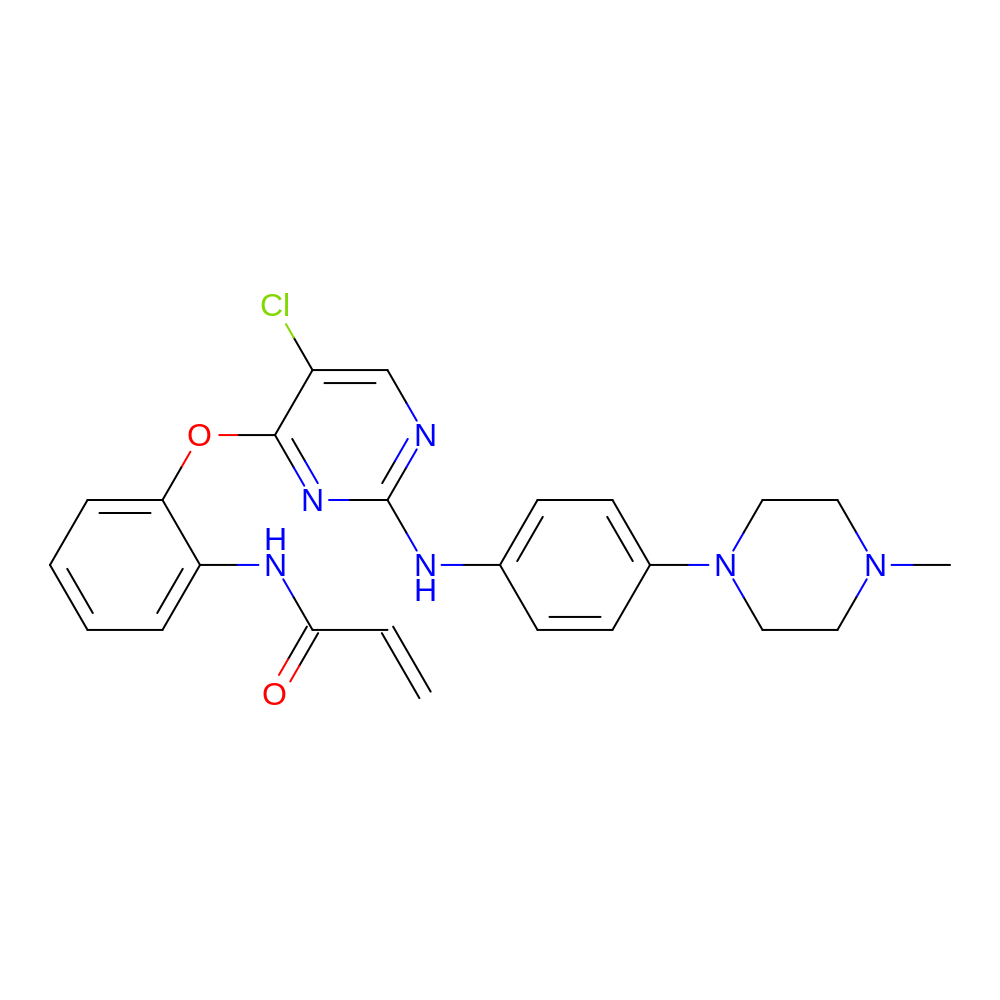5J8I
Target information
- RCSB PDB
- 5J8I
- Title
- Crystal structure of TL11-113 bound to TAK1-TAB1
- Method
- X-RAY DIFFRACTION
- Resolution
- 2.4
- Classification
- TRANSFERASE/TRANSFERASE inhibitor
- Organism
- Homo sapiens
- Protein
- Mitogen-activated protein kinase kinase kinase 7 (O43318) Looking for covalent inhibitors of this target ?
- Year
- 2016
- Publication Title
- Structure-guided development of covalent TAK1 inhibitors.
- Abstract
-
TAK1 (transforming growth factor-??-activated kinase 1) is an essential intracellular mediator of cytokine and growth factor signaling and a potential therapeutic target for the treatment of immune diseases and cancer. Herein we report development of a series of 2,4-disubstituted pyrimidine covalent TAK1 inhibitors that target Cys174, a residue immediately adjacent to the 'DFG-motif' of the kinase activation loop. Co-crystal structures of TAK1 with candidate compounds enabled iterative rounds of structure-based design and biological testing to arrive at optimized compounds. Lead compounds such as 2 and 10 showed greater than 10-fold biochemical selectivity for TAK1 over the closely related kinases MEK1 and ERK1 which possess an equivalently positioned cysteine residue. These compounds are smaller, more easily synthesized, and exhibit a different spectrum of kinase selectivity relative to previously reported macrocyclic natural product TAK1 inhibitors such as 5Z-7-oxozeanol.
- External Link
- RCSB PDB
Ligand information
- HET
- 6H4
- Chain ID
- A
- HET Number
- 601
- Molecular Formula
- C24H25ClN6O2
- Structure
-

- IUPAC Name
- N-[2-[5-chloro-2-[4-(4-methylpiperazin-1-yl)anilino]pyrimidin-4-yl]oxyphenyl]prop-2-enamide
- InChI
- InChI=1S/C24H25ClN6O2/c1-3-22(32)28-20-6-4-5-7-21(20)33-23-19(25)16-26-24(29-23)27-17-8-10-18(11-9-17)31-14-12-30(2)13-15-31/h3-11,16H,1,12-15H2,2H3,(H,28,32)(H,26,27,29)
- InChI Key
- WOQNVLPDIGPVKR-UHFFFAOYSA-N
- Canonical SMILES
- CN1CCN(CC1)c1ccc(Nc2ncc(Cl)c(Oc3ccccc3NC(=O)C=C)n2)cc1
- Bioactivity data
- CI001933
Covalent Binding
- Warhead
- Michael Acceptor
- Reaction Mechanism
- Michael Addition
- Residue
- CYS : 174
- Residue Chain
- A
- Interactions
- Pharmacophore Model